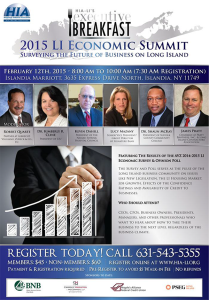By Christine Malafi
To protect shareholders, in certain circumstances the law places liability upon corporations and their directors and officers for damages caused by conduct harmful to shareholders or conduct that breaches fiduciary duties. Just the way car owners and homeowners have insurance to protect themselves from potential liability claims against them, corporations and their directors and officers can have similar protection. Directors’ and Officers’ (“D&O”) liability insurance protects individual directors and officers, as well as their corporations, defending against claims of wrongful conduct specified in the coverage and losses incurred to a corporation directly in connection with those claims.
In the underwriting process, in addition to setting the premium amount, the potential D&O insurer may also review a corporation’s governance and business practices, and may even suggest changes to be made prior to the issuance of such coverage. As with everything in business, the purchase of such insurance may require a cost-benefit analysis.
Insurers typically offer three different coverages. The first of these coverages compensates individual directors and officers when a corporation does not satisfy certain debts on their behalf. The second protects corporations when they indemnify their directors and officers for such claims. The third coverage protects the corporation from its own liabilities. None of these coverages defend or indemnify against allegations of fraud, acts that took place prior to the date coverage began, or suits between the corporation and its directors or officers. Nevertheless, all three of these coverages provide safeguards and help to manage the risk of liability. The D&O policy usually covers settlement amounts, legal fees, and compensatory damages that would otherwise have to be paid by the corporation or its officers and directors directly.
The one general standard that D&O insurance protects against are mis-steps by the corporation or its officers and directors. Even though the corporation and its employees can rely upon the business judgment rule as a defense to lawsuits, if a suit is based upon a decision or act which is rationally based, there are still risks, litigation may be protracted, and the cost of defending a lawsuit can be high. D&O insurance allows corporations to make rational business decisions without the fear of sustaining costs and expenses that could harm or even shut the business. As a result, it may be an important decision for a corporation as to whether to purchase D&O insurance.






